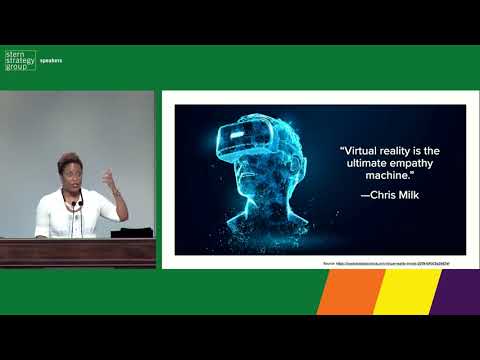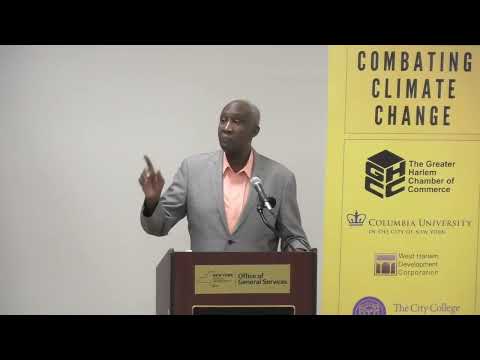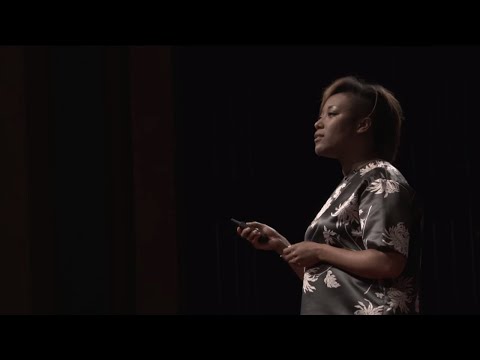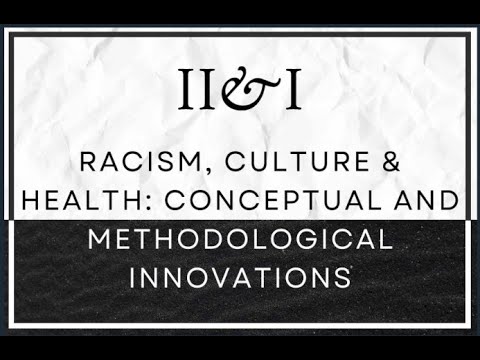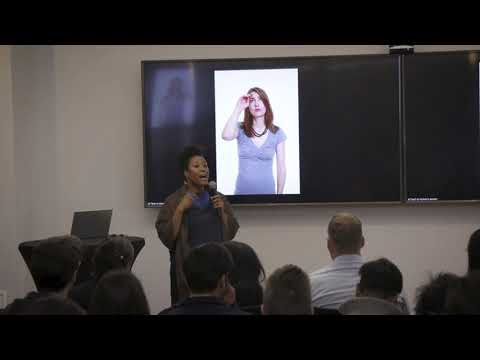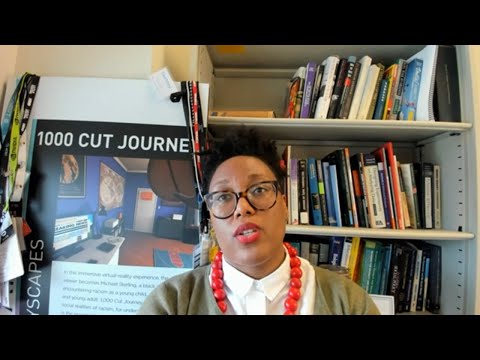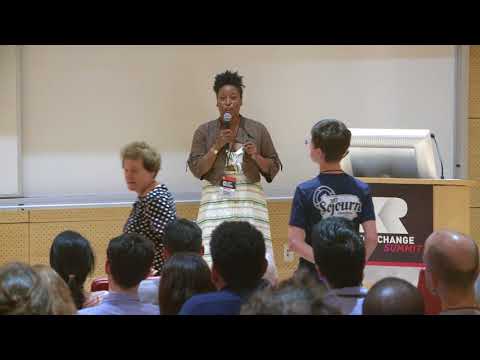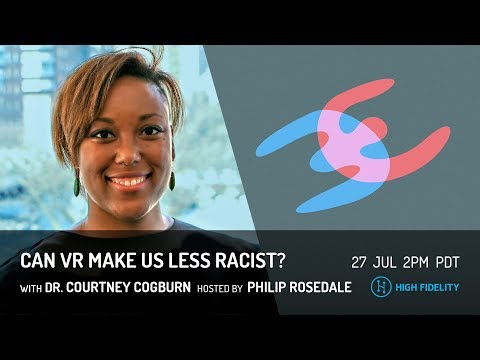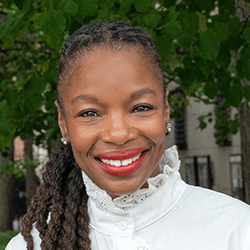Videos
Learn More About Courtney D. Cogburn
How does racism impact individuals – and by extension organizations and society? In an age some call “post-racial,” Professor Courtney D. Cogburn of Columbia University demonstrates that racism is deeply embedded – often invisibly – in institutions and our public psyche. The persistence of casual, semi-hidden prejudice harms racial and ethnic minorities and, more broadly, restrains social progress. Moving beyond bias, Cogburn’s research explores ways in which understated forms of cultural racism shape ideologies and norms, showing that exposure to subtle racism can actually have a greater impact on targets than blatant bigotry. Integrating principles and methodologies across the disciplines of health, psychology, education and virtual reality, Cogburn aims to influence the thoughts and behaviors of people who are impervious to the ways racism is still being exercised – including by themselves.
Both consumers and workforces have become more diverse in recent years. These trends require companies to be more attuned to the ways in which racism undermines their ability to reach more customers and recruit (and maintain) valuable talent. Cogburn began her career by focusing on and measuring how racism affects the health and education of racial minorities, particularly African Americans. This research has enabled her to detect and communicate the language and behaviors that cause psychological and physiological distress for individuals from racial minority groups. In doing so, Cogburn helps organizations better come to terms with knowledge and empathy gaps in identifying cultural and structural barriers that impede the recruitment, retention and promotion of their increasingly diverse population of customers and employees.
Recently, Cogburn partnered with virtual reality expert Jeremy Bailenson to develop an immersive experience simulating the experience of Blacks facing racism, discrimination and systemic brutality. Their work, which debuted at the Tribeca Film Festival in 2018, is supported by the Brown Institute for Media Innovation and the Hearst Foundation. The experience – which Cogburn eloquently describes in her TED Talk, “Experiencing Racism in VR” – is just one component of a broader curriculum aimed at supporting individual growth, but more importantly, structural and cultural transformation in service of achieving racial equity. In a world of rising social consciousness, this kind of proactive training is increasingly necessary to prevent the types of unconscious and/or casual racism that lead to employees feeling victimized or a brand’s reputational damage. In working to better understand the ways in which racism is intertwined in the structural and cultural fabric of society, Cogburn has made it her mission to bring these insights to light and make a difference in public discourse about race.
Cogburn is the co-director of the Justice Equity + Technology laboratory at the Columbia University School of Social Work. In addition to her academic research, she has consulted organizations invested in meaningful social change and engagement, including the Southern Jamaica Plain Health Center at the Brigham and Women’s Hospital in Boston. She also serves as a board member at the International Center Advocates Against Discrimination in New York City, which aims to educate and build community activism around issues of racism and health. Before coming to Columbia in July 2014, Dr. Cogburn was a Robert Wood Johnson Foundation Health & Society Scholar at the Harvard School of Public Health. She received her bachelor’s degree in psychology from the University of Virginia, master’s degree of social work from the University of Michigan School of Social Work, and doctorate in the Combined Program in Education and Psychology from the University of Michigan.
Cogburn’s research has been funded by the National Institutes of Health, Robert Wood Johnson Foundation, the Brown Institute for Media Innovation at the Columbia School of Journalism and the Hearst Media Foundation.
Courtney D. Cogburn is available to advise your organization via virtual and in-person consulting meetings, interactive workshops and customized keynotes through the exclusive representation of Stern Speakers & Advisors, a division of Stern Strategy Group®.
Race, Diversity, Equity, Inclusion and the Future of Work
Workforces are increasingly diverse – but are they more equitable and inclusive? As the business case for diversity becomes more robust and companies tout their rising numerical diversity, they often fail to build a culture that respects, maintains and leverages the benefits of diverse work environments. Casual, implicit racism often thrives in corporate settings, embedded in policy and culture that can drive valuable talent away, put the company in legal jeopardy and diminish the socioeconomic benefits of diversity. Furthermore, high-profile reputational crises involving employee- or company-propagated racism have thrust more leading brands into the light of scrutiny. Professor Courtney D. Cogburn, a leading expert on structural and cultural racism, helps companies develop more comprehensive strategies for reimagining organizations, cultural transformation and moving beyond implicit bias, including through the use of revolutionary VR sensitivity training technology. In this presentation, Professor Cogburn outlines pathways and roadblocks to anti-racism and reveals how even ostensibly progressive businesses may be unwittingly sustaining a culture of racism and exclusion. In the process, she shares concrete tools for building a future of work in which employee diversity, equity and inclusion are facts rather than idealistic slogans.
Exploring How Immersive Technologies Can Document and Reduce the Severity of Racism
Has your organization followed through on your diversity and inclusion commitments? Columbia University Professor Courtney D. Cogburn’s work is focused on helping leaders gain social and racial competence, address racial inequities, and understand the limits of empathy. A transdisciplinary social scientist with training in psychology, education, social work and population public health, her engaging presentations provide a knowledge base for seeing what racism truly is and how it shows up in organizations, with the goal of replacing showy gestures that cause “racism fatigue” with meaningful action. A pioneering researcher and co-director of the university’s Justice Equity + Technology Laboratory, Courtney is the lead for equity and diversity at the Data Science Institute. With funding from Meta, her team is creating virtual reality programs that can visualize data and create predictive models. Courtney’s groundbreaking “1,000 Cut Journey” VR simulation, which lets the user experience being a Black male at different life stages, is a vital learning opportunity that can lead to impactful change for individuals and the organizations they lead. As the metaverse is reimaging society, and potentially mimicking real-life inequities, Courtney is leading conversations that include diverse perspectives and asking executives to consider the policies and processes used to create these highly immersive technologies.
Culture + Racism: Using VR for Empathy and Engagement
In order to address racial inequality, we must first understand racism. Progress to racial equity is often stunted by the outright rejection of racial realities as well as mis- or narrow framings of racism. In this presentation, Dr. Courtney D. Cogburn shares insights into the rationale for using virtual reality (VR) to tackle issues of racism (and other social issues) as well as the unique process employed to develop 1000 Cut Journey. This immersive VR experience places the user into the “virtual shoes” of Michael Sterling, a Black male, who is experiencing racism as a child, adolescent and adult. Dr. Cogburn also discusses empirical studies examining the effects of the VR experience on racial empathy and engagement, as well as exploratory work with organizations to use the tool to support anti-racist and anti-oppressive diversity and equity initiatives.
How Should We Measure Racism and Its Impact on Health?
Why does race matter for health? Racial disparities in health are persistent, widespread and resistant to intervention. Failing to understand the significance of race, not only in terms of group difference but as a social and cultural phenomenon, may be partly to blame. Health and medical professionals increasingly consider the role of culture and other social determinants of health disparities but continue to fall short in meaningfully addressing the role of race. There is little knowledge, for instance, of how cultural threats and “microaggressions,” such as negative portrayals and exposure to racial violence in popular culture and media, can have a cumulative effect on one’s health. Professor Courtney D. Cogburn has developed a line of research examining the impact of racism on racial inequalities in health. In this presentation, she offers insights into the types of issues that cause distress for millions of people who go untreated and unacknowledged. If health and medical professionals are to properly treat individuals and address racial disparities in health, they need a fuller picture of how racism threatens mental and physical well-being and infiltrates health institutions.

Digital White Racial Socialization: Social Media and the Case of Whiteness
(Journal of Research of Adolescence, June 2022)
Ask us about Courtney Cogburn’s hands-on experiences that take learning beyond the boardroom.
Now That We’re Talking…What is Systemic Racism? How Do We Measure It – and Eradicate It?
The killing of George Floyd and too many other Black citizens by authority figures abusing their power has fueled much-needed dialogue around the undeniable existence of systemic racism. Voices for change continue to remind us that racism is embedded in every area of society, not just law enforcement. So how deep – and how widespread – are the roots of racism? What does it look like and how do we define and measure it? And most importantly, how do we weed it out for good? Columbia University Professor Courtney D. Cogburn has been studying the effects of racism on individuals, organizations and society for many years. Along the way, she developed a virtual reality technology that takes people through the experience of being Black in society. Those who have “walked” through it have been profoundly affected by the experience and left with an indelible sense of empathy and understanding. This workshop offers organizations an opportunity to develop more racially competent leaders, especially C-Suite leaders who may need help driving conversations around race and implementing solutions. Participants will come away with a better understanding of how to recognize and deal with racism in their own organizations, and those who are tasked with reframing their diversity, equity and inclusion programs will receive valuable guidance on how to do so successfully.

